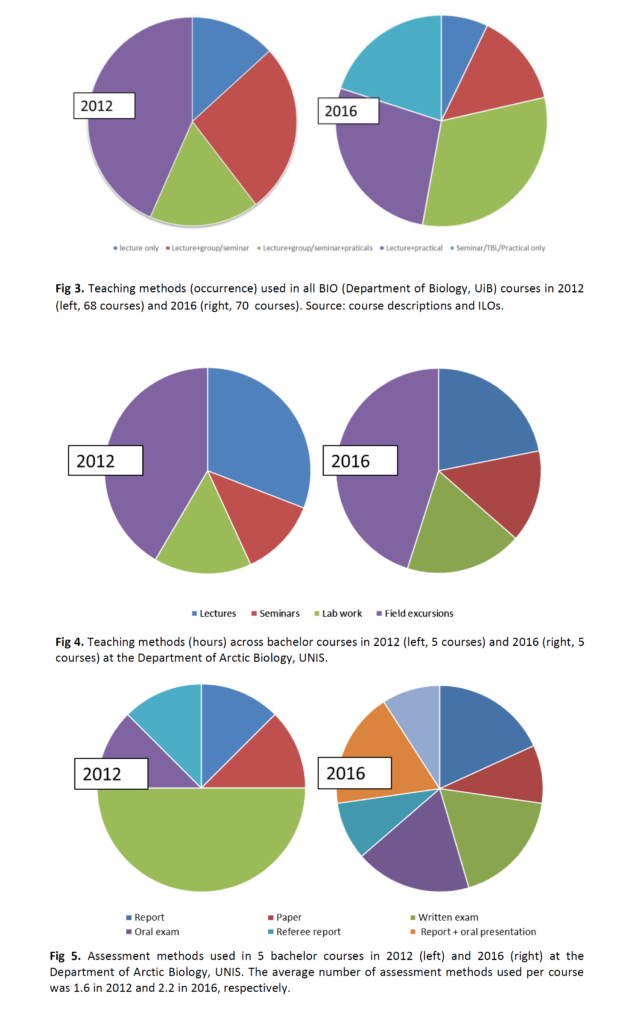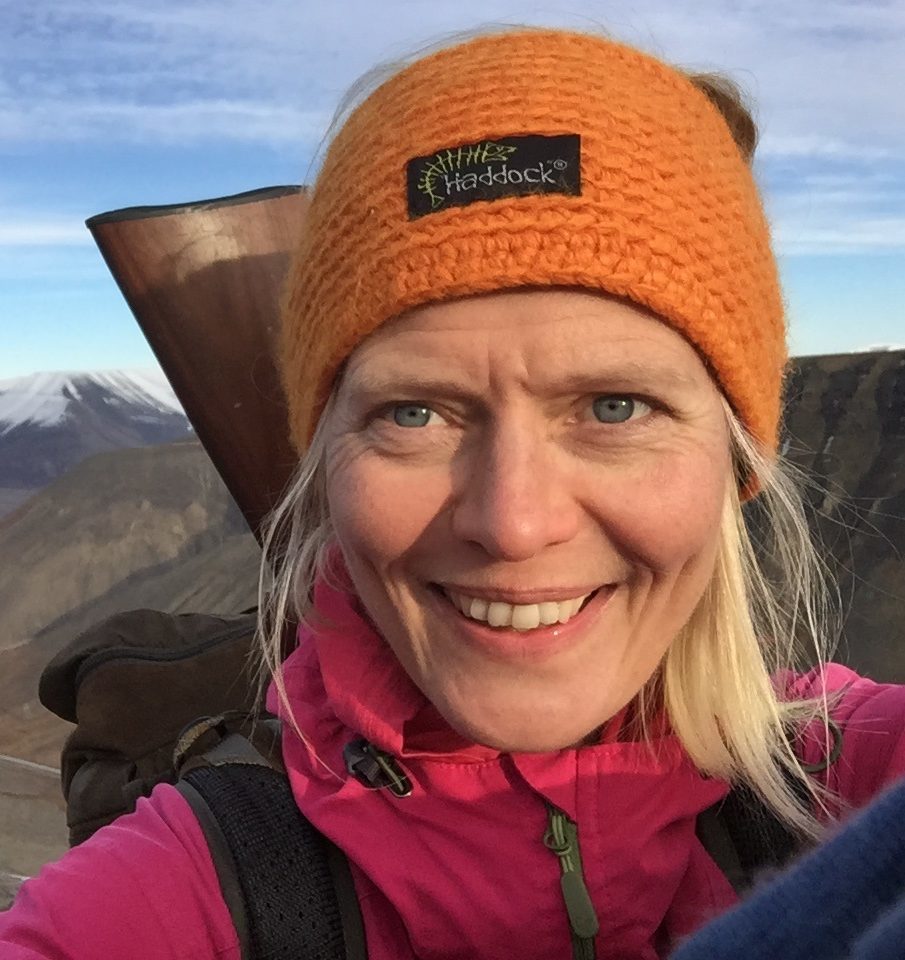Looking back at 3 years with bioCEED
As part of the interim evaluation of the Centres of Excellence in Education, we were asked by NOKUT and the evaluation committee to write a self-evaluation report. Looking back on 3 years of activity and summing up was a challenging but rewarding exercise!
So what has happened since April 1st 2014?
After advice from our Advisory Board we organized our work into 4 main focus areas:
teacher culture, innovative teaching, practical training, and outreach.
bioCEED has worked to promote a scholarly and collegial (SoTL) teacher culture through creating arenas where different stakeholders, and especially the teaching staff, collaboratively can develop their pedagogical knowledge and skills and share and discuss teaching and learning.
 bioCEED work and ‘community approach’ to educational development has led to what we would describe as an ‘emerging SoTL-culture’ among the teaching staff at our two biology departments. This shift is expressed as a transformation in the teaching practice and communication about teaching, and the attitudes towards teaching and learning and educational development are more informed, scholarly and nuanced. Teachers, students and educational support staff are involved in research and development projects, as well as collegial activities to strengthen pedagogical competence.
bioCEED work and ‘community approach’ to educational development has led to what we would describe as an ‘emerging SoTL-culture’ among the teaching staff at our two biology departments. This shift is expressed as a transformation in the teaching practice and communication about teaching, and the attitudes towards teaching and learning and educational development are more informed, scholarly and nuanced. Teachers, students and educational support staff are involved in research and development projects, as well as collegial activities to strengthen pedagogical competence.
At the institutional level, the implementation of a reward system for Excellent Teaching Practitioners (ETP) at UiB is a major milestone.
bioCEED is, and will continue to be, a well-known advocate for teaching reward systems with SoTL-based criteria, and we have contributed actively and visibly to the Norwegian public debate and policy development in this area.
Developing, researching and testing new teaching and learning methods and technologies is at the core of the bioCEED student-centred educational development. The broad scope and range of biology in science and society, and the variety of subjects studied within a biology degree, offer great potential as a ‘lab’ for testing out a variety of teaching and learning methods. Exploring these opportunities is the core of the focus area innovative teaching.
bioCEED expands and develops the learning environment by effectively combining traditional methods with novel field, lab, and digital approaches that support learning. Student motivation and learning outcomes are highly connected with using appropriate, student-active learning methods, and access to an appropriate learning environment. A cross-cutting theme is student involvement, not only in the form of student-active teaching methods but also by students taking the initiative to, planning, and executing learning activities.Our students are also running their own projects – like biORAKEL and bioBREAKFAST.
And changes has happened! (see figure)
To strengthen transferable skills training and the focus on core competences in biology we are developing the learning platform bioSKILLS as a resource for students and teachers. The learning platform provides common toolbox aligning skill training between courses. In addition to providing students with tools and knowledge, we actively involve students in producing the learning content themselves (e.g. through the Teach2Learn video production). The first module to be populated is bioST@TS, which is designed to help students get a better grip on data handling and statistics in the context of biological studies.
bioCEED has developed work practice courses for biology students, and these are now implemented as an elective course (BIO298) in the BSc and MSc programmes. These supplemented already-existing courses where students could conduct a small research projects under supervision (BIO299, AB207). A new dissemination project course (BIO296) is running at BIO for the first time in spring 2017, and a work practice course at UNIS is under planning. Skills training has also been increased in several other courses. Sector contact is expanded across the curriculum, e.g. in the form of seminars with end user participation, (these are student-organised activities) and invited talks.
The work practice course initiated by bioCEED also has the novel aspects that student learning and development through the course are logged though blogs, discussions and a Facebook group, and that the blogs are part of the course deliverables and student assessment (blogs can be read here; most are in Norwegian).
Where do we go from here?
Our three most important priorities for the second period are:
- Alignment – we will make optimal use of our platforms, within-course initiatives, strategic program development, and quality assurance systems to develop truly constructively aligned study programs, focusing on developing key skills and competences through the curriculum.
- Mainstreaming – we will develop mechanisms for mainstreaming successful innovations into our decision-making structures and programmes. This will ensure that good practices are implemented and exploited optimally, and also make room for new development projects.
- Project culture and research – we will build on and further develop the emerging project-based collegial SoTL culture within our host institutions. This will benefit educational development, student learning, teacher job satisfaction, collegiality, and departmental outcomes. In particular, a collegial SoTL culture will promote educational excellence, development and documentation of teaching and learning outcomes, and research-based education (i.e., student research experiences; evidence-based best practice; and up-to-date course content).



